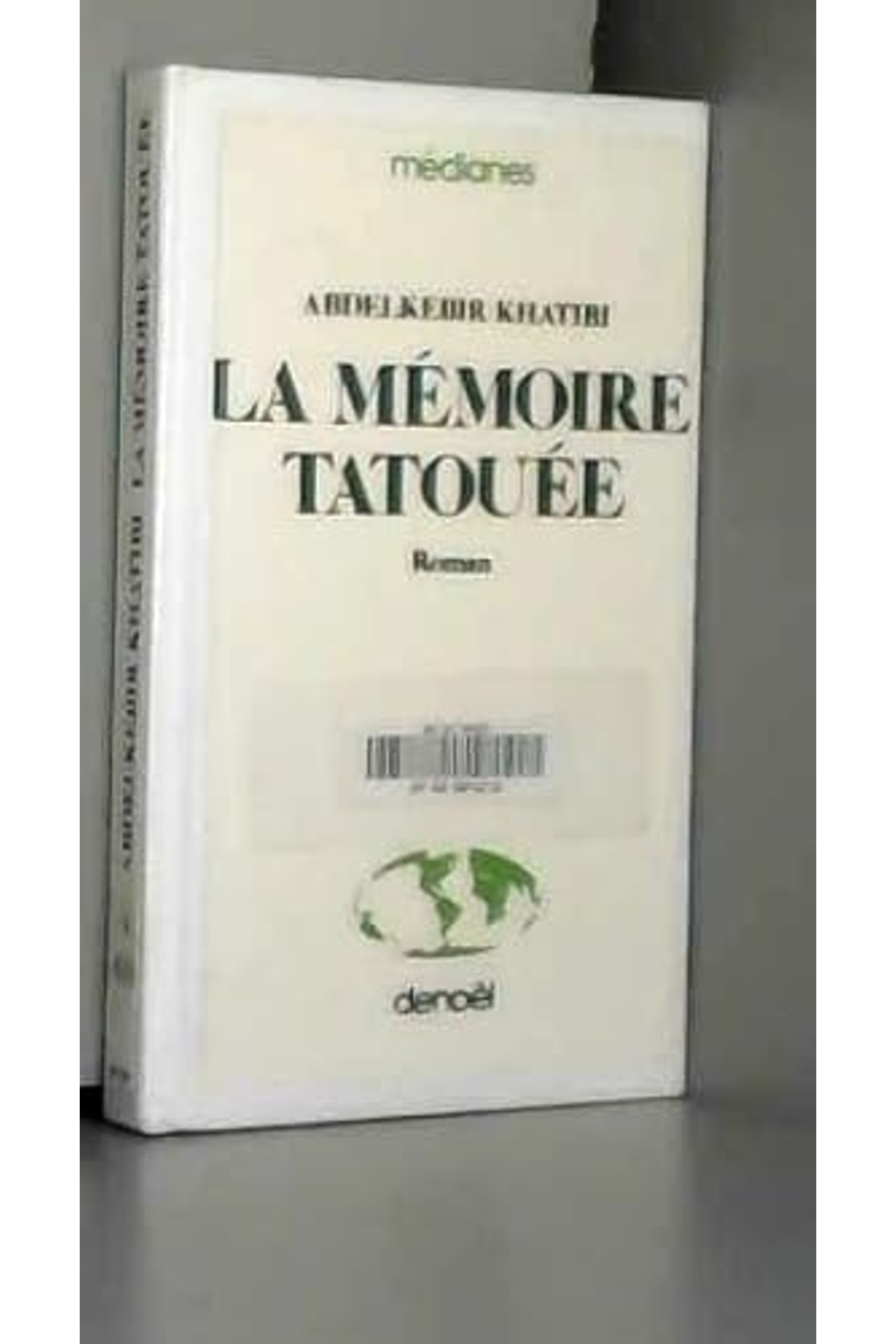“La Mmoire Tatoue: Autobiographie d’un Dcolonis” by Abdelkebir Khatibi is a seminal work of postcolonial literature exploring identity, memory, and the lingering impact of French colonialism. This poignant autobiography, originally published in French in 1982, delves into Khatibi’s personal journey as a Moroccan intellectual grappling with the complexities of cultural displacement and the construction of self in a post-colonial world. Known for his critical writings on literature, sociology, and the Maghreb, Khatibi weaves personal anecdotes with profound theoretical insights, examining the tensions between Arab and French heritage and the psychological effects of colonial power. This influential work offers a powerful reflection on the experiences of a generation navigating the challenges of decolonization, making it essential reading for scholars and anyone interested in postcolonial studies and the search for identity. Paperback edition, published by Denol.
LA MEMOIRE TATOUEE: AUTOBIOGRAPHIE D’UN DECOLONISE (LETTRES NOUV)
13,52 $
In stock
Embark on a profound and introspective journey through the life and mind of Abdelkebir Khatibi with “La Mmoire Tatoue: Autobiographie d’un Dcolonis (Lettres Nouv),” a compelling autobiography that delves into the complexities of identity, colonialism, and cultural displacement. Published in French by Denol in 1982, this 187-page paperback is far more than a simple recounting of events; it’s a deeply philosophical exploration of what it means to be a “decolonized” subject navigating a world shaped by historical power imbalances. Khatibi, a renowned Moroccan writer, sociologist, and literary critic, masterfully weaves together personal narrative and insightful analysis. He doesn’t shy away from confronting the psychological impact of colonialism, examining how it etches itself onto the individual’s memory and consciousness like a tattoo. The book explores the lingering effects of French colonialism in Morocco and its repercussions on personal and collective identity. It is a profound reflection of the experiences of a whole generation of post-colonial intellectuals. In “La Mmoire Tatoue,” Khatibi grapples with the tensions between his Arab and French cultural heritage, questioning the very notion of a singular, fixed identity. He reflects on his education, his intellectual development, and his evolving understanding of the world around him. The writing is both poetic and rigorous, blending personal anecdotes with sophisticated theoretical insights. The author reflects on the role of language and literature in shaping ones identity, particularly in a post-colonial context. It offers profound reflections on the nature of memory, history, and the intricate process of constructing a self in a world marked by cultural and political fragmentation. Considered a seminal work in postcolonial literature and critical theory, “La Mmoire Tatoue” has resonated with readers and scholars for decades. It provides a nuanced and deeply personal perspective on the challenges and possibilities of forging a new identity in the aftermath of colonialism. It’s a powerful reminder of the enduring legacy of colonialism and its complex impact on individuals and societies. This is a must-read for anyone interested in postcolonial studies, autobiographical writing, and the exploration of identity in a globalized world. Add this important book to your collection today!
| Authors | |
|---|---|
| Binding | |
| Condition | |
| ISBN-10 | 2207281019 |
| ISBN-13 | 9782207281017 |
| Language | |
| Pages | 187 |
| Publisher | |
| Year published | |
| Weight | 4000 |
Related products
-
Seven Deadly Sins
93,82 $
- Additional information
- Currencies
- USD – United States dollar
- EUR – Euro
- GBP – Pound sterling
- CNY – Chinese yuan
- BRL – Brazilian real
- MXN – Mexican peso
- JPY – Japanese yen
- PHP – Philippine peso
- THB – Thai baht
- PLN – Polish złoty
- CAD – Canadian dollar
- MYR – Malaysian ringgit
- AUD – Australian dollar
- TWD – New Taiwan dollar
- CZK – Czech koruna
- SEK – Swedish krona
- HUF – Hungarian forint
- ILS – Israeli new shekel
- CHF – Swiss franc
- HKD – Hong Kong dollar
- DKK – Danish krone
- SGD – Singapore dollar
- NOK – Norwegian krone
- NZD – New Zealand dollar





